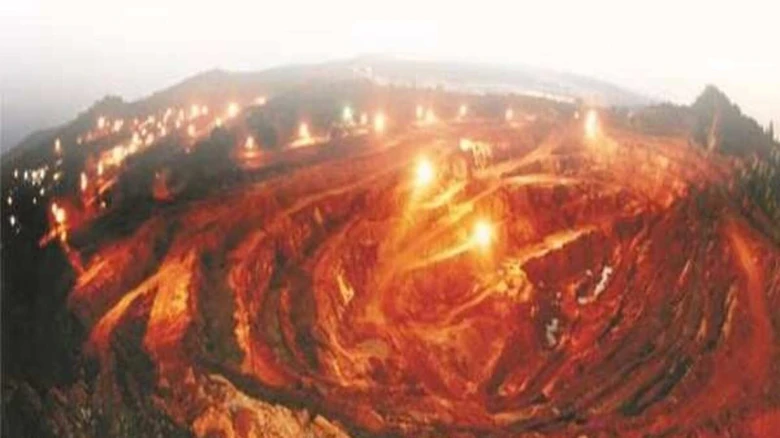Aside from these, the Ministry of Coal received 17 reports on coal and lignite with a total resource of 7897 million tonnes.
Digital Desk: The Union Government announced on Thursday that for the first time in the country, 5.9 million tonnes of lithium reserves were discovered in Jammu and Kashmir. Lithium is a non-ferrous metal that is an important component of EV batteries.
"The Geological Survey of India established Lithium inferred resources (G3) of 5.9 million tonnes for the first time in the Salal-Haimana area of the Reasi district of Jammu and Kashmir," the Ministry of Mines announced on Thursday.
It goes on to say that 51 mineral blocks, including lithium and gold, have been handed over to state governments.
"Of these 51 mineral blocks, 5 pertain to gold, while the remaining blocks pertain to commodities such as potash, molybdenum, base metals, and so on, and are spread across 11 states including Jammu and Kashmir (UT), Andhra Pradesh, Chhattisgarh, Gujarat, Jharkhand, Karnataka, Madhya Pradesh, Odisha, Rajasthan, Tamil Nadu, and Telangana," the ministry added.
The blocks were created based on GSI's work from the 2018-19 field seasons to the present.
Aside from these, the Ministry of Coal received 17 reports on coal and lignite with a total resource of 7897 million tonnes.
During the meeting, seven publications on various themes and intervention areas in which GSI operates were also released.
"During the meeting, the proposed Annual Programme for the upcoming Field Season 2023-24 was presented and discussed.
GSI will undertake 966 programmes totaling 318 mineral exploration projects, including 12 marine mineral investigation projects, during the fiscal year 2023-24 "The ministry went on to say more.
The Geological Survey of India has developed 115 projects involving strategic and critical minerals, as well as 16 projects involving fertilizer minerals.
"55 geoinformatics programmes, 140 fundamental and multidisciplinary geosciences programmes, and 155 training and institutional capacity building programmes have also been implemented," according to the Mines ministry.
The Geological Survey of India (GSI) was founded in 1851 to locate coal deposits for the Indian Railways. Over the years, GSI has not only evolved into a repository of geo-science information needed in various fields throughout the country, but it has also earned the status of a geo-scientific organization of international renown.
Its primary functions are to create and update national geoscientific information and to assess mineral resources. Ground surveys, airborne and marine surveys, mineral prospecting and investigations, multi-disciplinary geoscientific, geotechnical, geoenvironmental, and natural hazards studies, glaciology, seismo-tectonic studies, and fundamental research are used to achieve these goals.
The primary role of GSI is to provide objective, impartial, and up-to-date geological expertise and geoscientific information of all kinds, with a focus on policy decisions as well as commercial and socioeconomic needs.

Leave A Comment